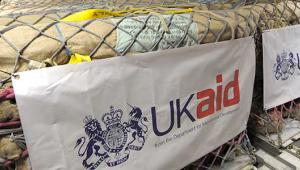DfID’s contract management function was “poorly defined” and “under-resourced”, the Independent Commission for Aid Impact concluded, in a review of the department’s value for money through procurement.
No senior official or department had overall responsibility for the contract management function at the time of the review within DfID, the watchdog noted.
The review said: “To effectively manage a contract requires monitoring of whether suppliers comply with budgets, timetables and other contract terms, and maintaining a productive relationship between suppliers and DfID.
“Without active contract management, there is a risk that programmes may achieve poor commercial outcomes even if they successfully reach their targets.”
The department spent around £1.4bn, 14% of its 2016-17 budget, through commercial suppliers ranging from school construction to family planning services and humanitarian aid delivery, the report by ICAI said.
According to the UK’s National Audit Office, overall responsibility for contract management should rest with a senior official.
ICAI said: “DfID has not taken the steps recommended by the National Audit Office for making sure that the contract management functions are assigned to appropriate people.”
It added that the lack of a formal contract management process meant the department is left reacting to performance issues with suppliers, rather than using performance incentives, risk transfers and other contract management tools to prevent problems.
The review recommended that DfID puts in place a formal contract management regime, underpinned by training and guidance and put a senior official in charge of the process across the department.
“The new regime should include appropriate adaptive contract management techniques, to ensure that supplier accountability is balanced with the need for innovation and adaptive management in pursuit of development results,” ICAI said.
The review also found that contracts were frequently amended or extended beyond the initial length and values.
The review said that out of 44 contracts, 34 had been subject to formal amendments, with an average of three each.
It said: “The frequency of amendments suggests that DfID is defining contractual obligations too rigidly – possibly as a result of choosing the wrong procurement method or contract model.
“Had appropriate contract management processes been in place, most of these changes could have been addressed more cost-effectively without formal amendment.”
Within the past five years, DfID’s 711 contacts have been extended by a total of £2bn in value, it said.
The report did, however, note the department has made progress towards “a more mature procurement approach” since 2015. It is now following current EU legislation and is aligned with the UK government’s own procurement guidelines.
It also acknowledged DfID had a “good performance in most areas of tendering”.
A DFID spokesperson said: “ICAI’s report rightly recognises there have been positive changes to DFID’s procurement approach over the past decade, including the strengthening of contract terms and conditions and the new Supply Partner Code of Conduct.
“DFID is committed to making sure every penny spent on helping the world’s poorest delivers value for money for the taxpayer.”
This was the second of two reviews the ICAI has conducted into how well DfID achieves value for money through procurement, and tendering and contract management practices.
The first review explored DfID’s approach to its supplier market.
This work complements a further ICAI review on DfID’s approach to value for money in programme, which PF International covered in February.













